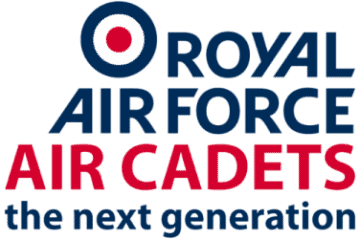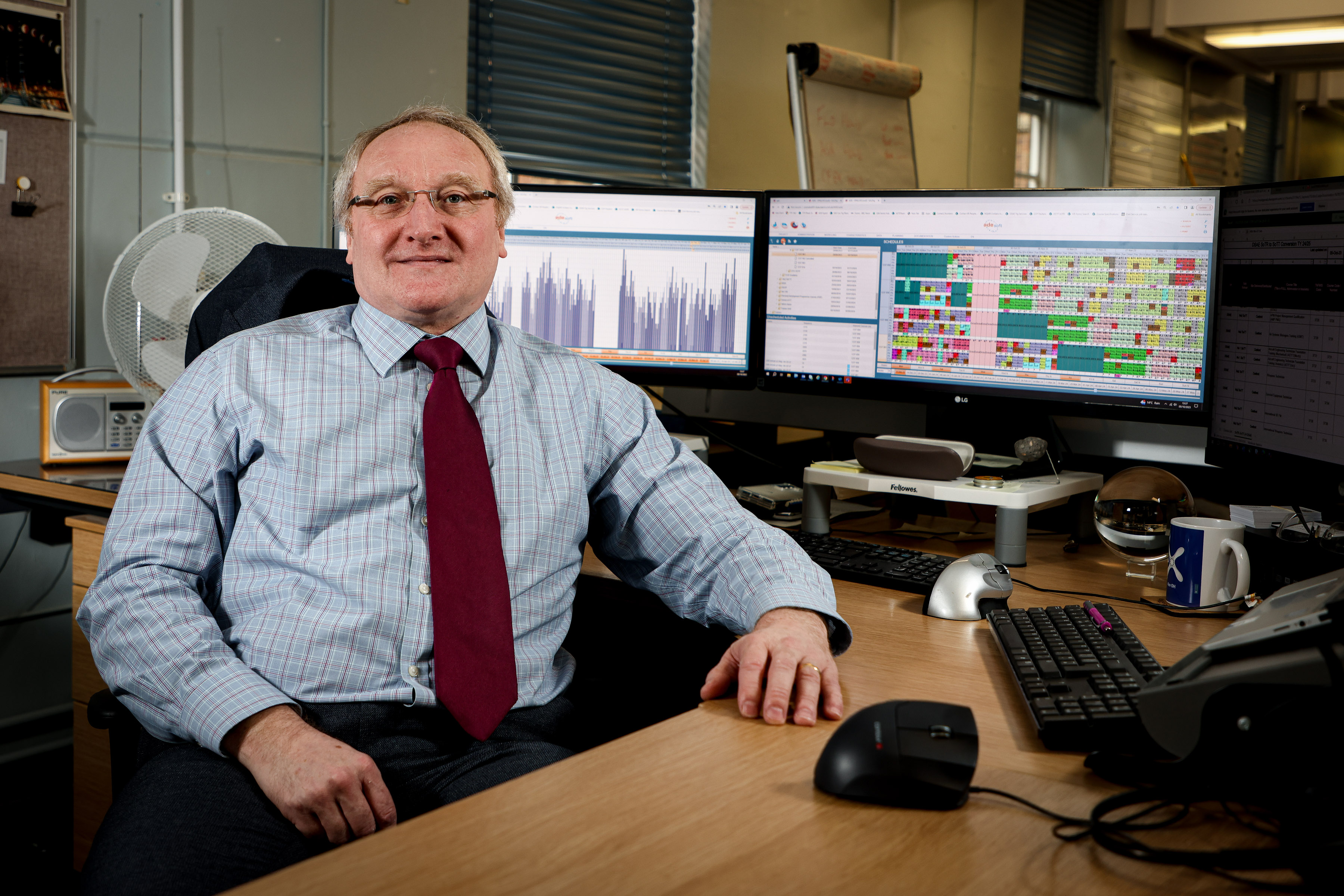
Mr Kev O'Halloran - Training Delivery
Before our apprentices commence their technical training, that training must be planned and continuously updated to remain relevant, scheduled and timetabled.
Kev O’Halloran, a civil servant within Training Delivery, and a former RAF Avionic Technician himself, leads a team of six that takes output course syllabi from the course design department and in conjunction with RAF Cosford Instructors and support staff, converts the syllabus content into an instructional delivery profile.
So, what does that mean?
Kev explained to us: “The course profile includes all physical resources and staff requirements to successfully deliver each course entry in the most efficient manner considering all diversions from Tech Training such as scheduled leave, the RAF Cosford Air Show, RIAT and other non-planned activities such as the King’s coronation, etc. This then allows training delivery areas to allocate staff to all courses in residence at RAF Cosford; resources are automatically assigned to the lesson via the delivery profiles that my team creates, but they can be altered by user sections.”
Why is all of this so important for RAF Cosford training?
“The centralised scheduling team provide all timetables for students and staff but also for the often-forgotten support areas like the gym, medical, dental etc. These areas often have capacity issues which we control by limiting the numbers of courses being sent to them. In the larger picture my role continually monitors resourcing requirements looking at where better efficiency can be achieved or more equipment is required. The bulk of my ‘what if’ scenarios often check if training can be done on a smaller footprint or if can RAF Cosford support more training without detriment to current resources levels.”
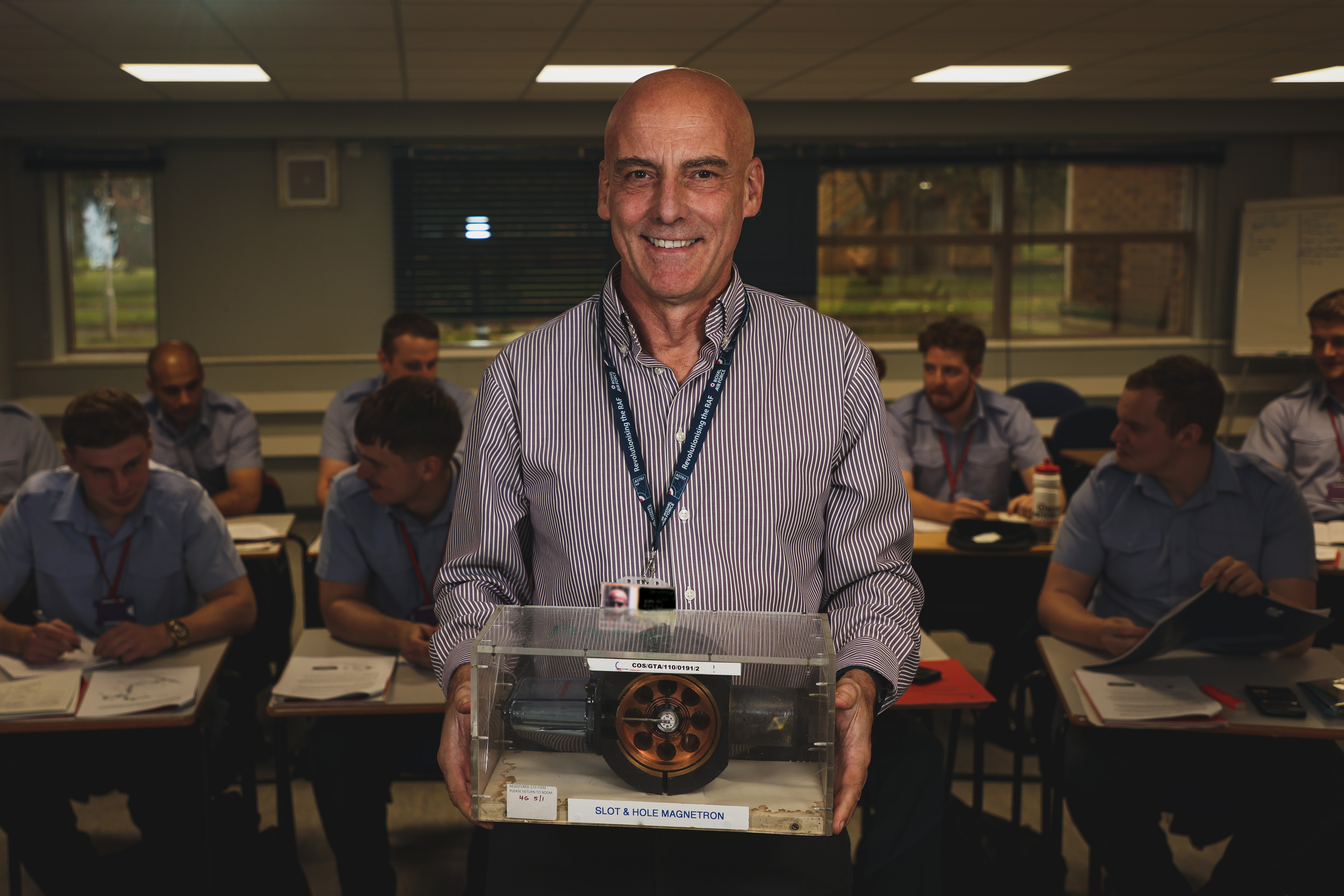
Mr Ian Middleton - Academic Principles Organisation (APO)
Ian Middleton, from Stoke on Trent, joined the RAF in the aircraft electrical trade in 1982 before being assimilated to the avionics trade in 2006. He left the RAF in 2012 and undertook a career within education before returning to military training in 2018.
He is now a Senior Burnham Lecturer within the Academic Principles Organisation (APO) that is committed to delivering a comprehensive curriculum. APO teaches Science, Technology, Engineering, Mathematics, Leadership, Management and Coaching and Mentoring subjects from level 3 to level 6. They deliver education to future Engineering Officers and engineering apprentices across the Defence School of Aeronautical Engineering (DSAE). This integral specialist training underpins all their specific trade related and practical lessons, to strengthen and support learning throughout the rest of their course. This specialised study also serves as the foundation for their continuing professional training throughout their career.
On top of that, Ian is also the Executive Officer for No.2 School of Technical Training, supporting governance and assurance of delivery for students across RAF Cosford.
Ian said, “We take extreme pride in our team’s role, to help shape Royal Air Force engineers of the future, who will be working on cutting edge, game changing technologically advanced and innovative systems, on next generation aircraft into 2035 and beyond."
“Our wealth of expertise is currently being harnessed to educate, to degree level, Royal Navy engineers, and in 2024, we are extending our teaching to British Army engineers. Hopefully, 2025 will also see APO delivering its own accredited BEng, as part of the Degree Entry Scheme, in conjunction with a university partner.”
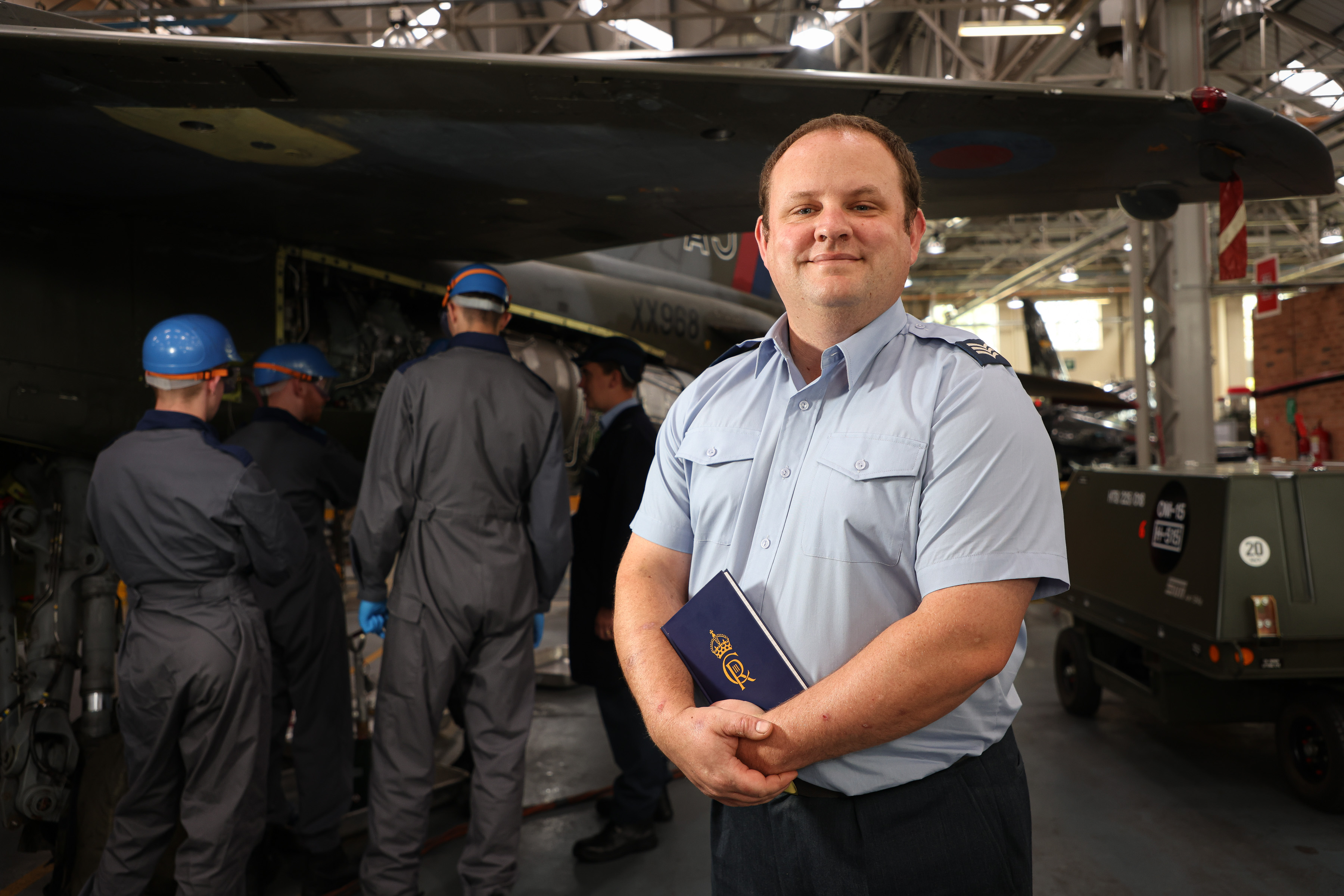
Sergeant Chris Adamson - Training Development Coordinator (TDC)
Sgt Chris Adamson has served across a broad spectrum of aircraft platforms in the RAF for the last 18 years and is now a Training Development Coordinator (TDC) within Mechanical Training Squadron (MTS) at No.1 School of Technical Training.
The TDC’s main responsibility is supporting the welfare of all apprentices undertaking training. But they also monitor their academic progress and work coherently with the Station Disciplinary team to maintain the standards and discipline expected of service personnel.
On a day-to-day basis, TDC’s are the first port of call for apprentices to discuss academic, personal, or professional issues that they may be facing and the TDC’s assist by either providing them an ear and supporting them or by signposting them to the correct area that can help. The TDC will also offer guidance with their academic studies if an apprentice is finding a subject particularly challenging.
Chris highlighted “Apprentices come to us straight from phase 1 training at RAF Halton. Understandably, it can be a very challenging time for them, being on an intensive course in an unfamiliar environment. I help them adjust to phase 2 training and make sure they know that support is there for them if they require it. Giving trainees direct support, making sure they know that someone is caring for their welfare can make the difference between them passing, failing, or indeed even staying in the RAF.”
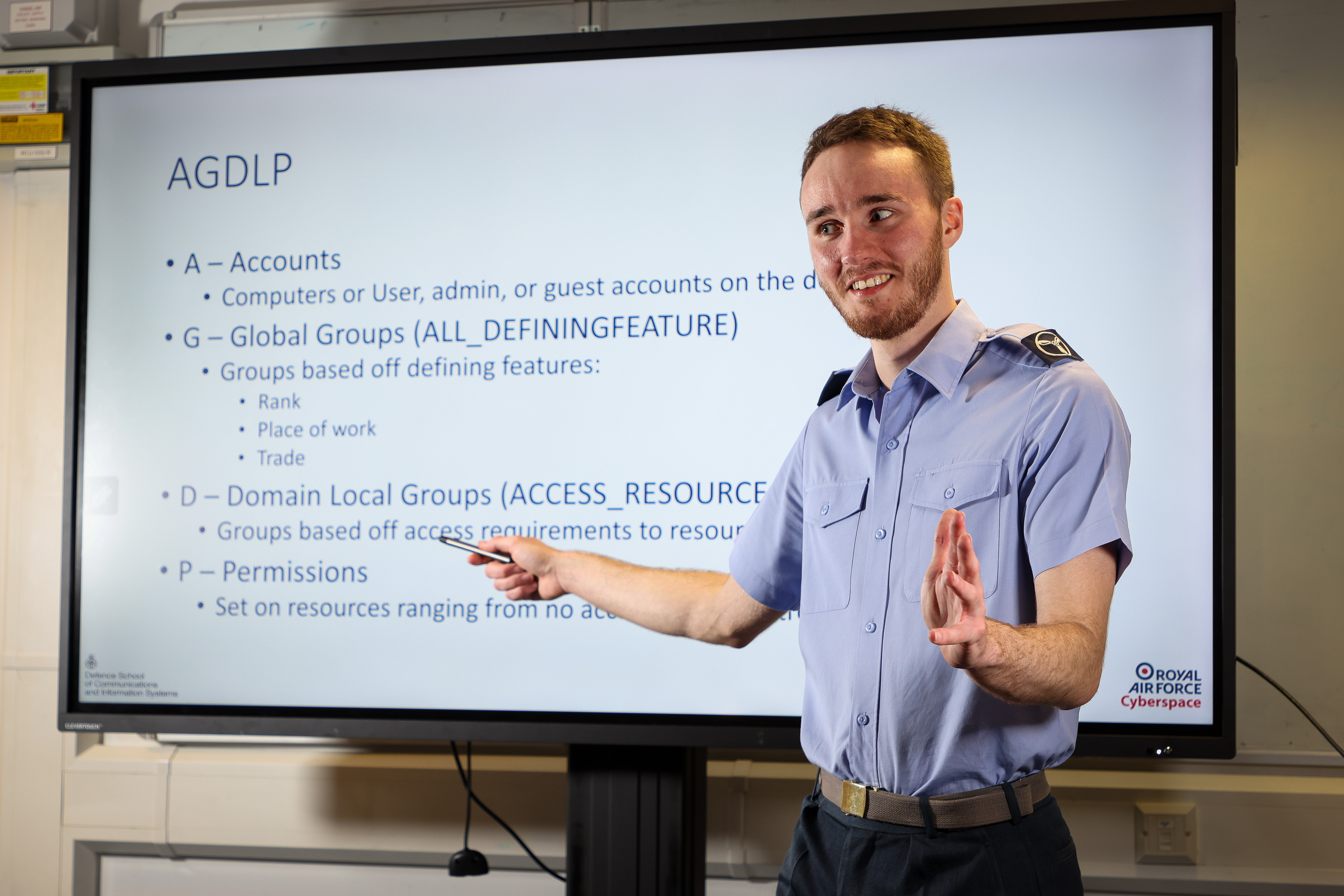
Air Specialist (Technician) Class 1 Dominic Maxwell - No.1 Radio School Instructor
Air Specialist (Technician) Class 1 Dominic Maxwell joined the RAF in 2017 as a Cyberspace Communications Specialist and is now an instructor within No. 1 Radio School. Dominic trains apprentices on the Windows Server Administrator element of their phase two training, which involves both theory and practical elements.
On a day-to-day basis, Dominic is delivering lessons to apprentices. This will generally involve teaching a course of apprentices over a two-week period, with the aim of them acquiring the skills necessary in that time to build, configure and administrate a fully functioning server. Dominic ensures that they have a full understanding of both the theory and the hands-on elements required before they move on to their next module of training.
“My job role involves teaching one of the many mandatory skills Cyberspace Communications Specialists are required to learn and demonstrate an understanding of, before graduating and moving into active duty. As such, my job role is as imperative as with the other instructor roles within No1 Radio School for the development of those joining the profession.”
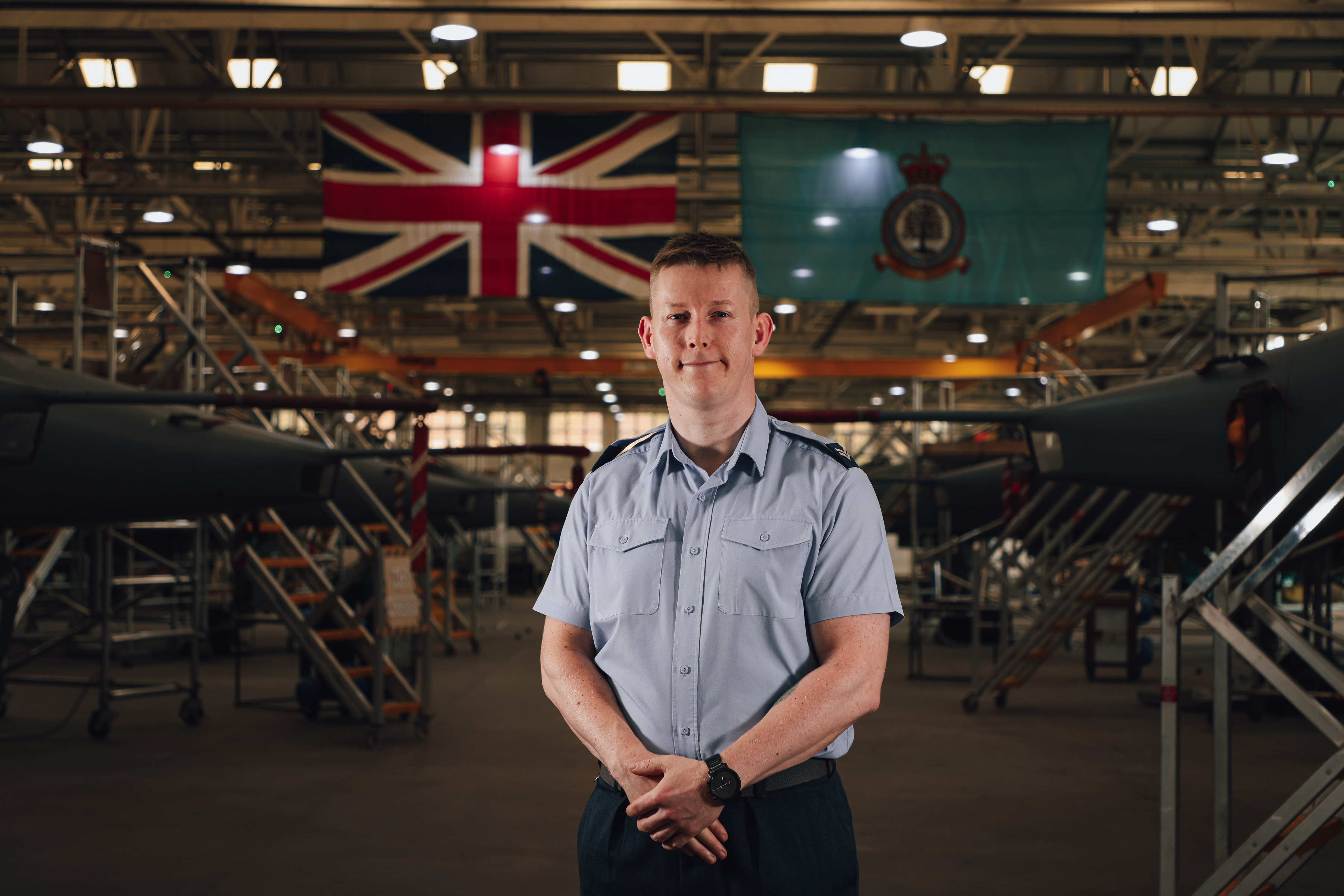
Corporal John Stanbridge - Avionics Training Flight Instructor
Corporal John Stanbridge is an Avionics Aviation Technician with just over 15 years’ experience within the RAF. John has worked on both rotary and fixed wing aircraft and has served on 3 operational tours during his career so far. He is now an instructor within Avionics Training Flight within Number 1 School of Technical Training.
John said “I've always enjoyed sharing my knowledge and experience with the new guys arriving on Squadron in my previous roles, making sure they were up to speed as quick as possible. Helping people develop and understand the technical aspects of engineering is rewarding to me. I started my role as an Aircraft Avionics instructor in April 2023. I was drawn to the role because of the stability that it offered for the working hours and the potential to share my own experiences and knowledge to help people.”
The Avionics Training Flight develops apprentices with the necessary technical engineering skills to prepare them to support the RAF's frontline squadron operations. This covers all aspects of Aircraft systems theory along with practical hand skills and application towards component replacement and electrical fault finding. John instructs aspects of Military policy, Aircraft documentation and Human Factors to help them understand their responsibilities, the importance of paperwork and how to work safely within the Defence Aviation environment.
How does this type of training look?
“I usually arrive in to work just before 8am to make sure my lesson is prepped for the apprentices’ arrival. I work mainly within a classroom environment teaching up to 16 apprentices at any one time. As a section we work hard to encourage them to take control of their own learning. Using EBT techniques and research tasks to get them involved as much as possible. I will teach a course for a 2-week period before they move onto another phase of their training. During training break periods and lunchtimes, I will go to the gym or catching up with any lesson prep/marking. You'll find me either on the athletics track or gym training for Bobsleigh outside of work hours.”
Why is the job role so important?
“As instructors we give trainees an insight into the wider Air Force and provide them with the baseline skills and understanding to fulfil their future roles on any aircraft type within the Royal Air force. Instructors have the ability to inspire and motivate students to learn and become better aviators and technicians of the future RAF. It's an essential part of the RAF Cosford's role as a Phase 2 training establishment to fulfil the training pipeline towards frontline operations. Without suitably trained and experienced personnel the RAF would fail to operate aircraft safely.”
Mr John Pickard - Mechanical Training Squadron Instructor
John Pickard is a Civil Service Instructor teaching Mechanical practical skills within Mechanical Training Squadron, Number 1 School of Technical Training. He has always had a passion for aviation and joined the RAF on a YTS scheme earning £17 a week. John left the RAF and pursued a career within the Police Service whilst maintaining his enthusiasm for aviation by volunteering at The Cold War Collections, Bruntingthorpe and Coventry. During this time, he also gained a qualification within Education and was able to transition into the civil service as an engineering instructor.
Mechanical Training Squadron teach the theoretical and practical skills of aircraft maintenance. John specifically is a Gas Turbine Engine Training Officer in theory of Gas Turbines and the mechanical practical element of aircraft maintenance such as removing aircraft engines safely and refitting them.
As well as instructing, John is team leader of 10 other instructors within the Gas Turbine team. John said, “In parting our knowledge and experiences with this level of aircraft maintenance, we are able to develop the apprentices into strong Mechanical Engineers in support to their own future careers within the RAF.”

